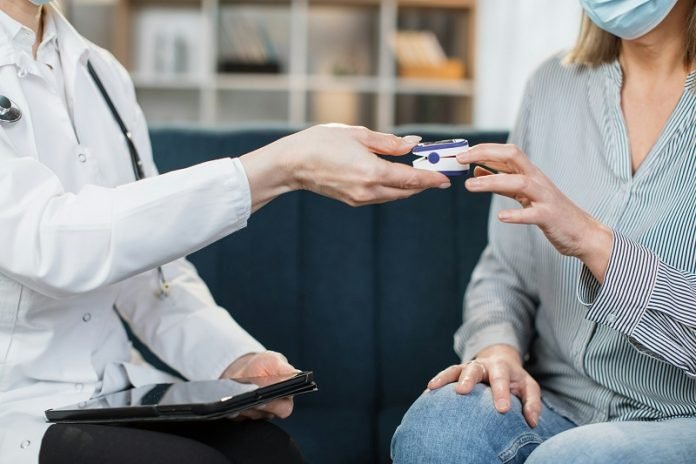
As a surge in COVID cases spurred in part by low rates of vaccination with the updated 2023-2024 vaccine, winter gathering, and the new JN.1 variant moves across the United States, the use of the anti-viral drug Paxlovid remains low for those who may benefit.
In March 2022, the United States government announced an ambitious plan that would enable people with symptoms of COVID-19 to test and be quickly treated with the anti-viral therapy, which has been shown in trials to greatly reduce the risk of severe illness, hospitalization and death.
Now, almost two years later, Paxlovid officially has FDA approval and the department of NIH Home Test to Treat program has expanded to cover telehealth visits, home testing for both flu and COVID, and medications to those who meet certain criteria.
And while vaccination is still the first line of defense against hospitalization and death, people who are at higher risk — and the list of who might be is long — should consider seeking out the drug, says Lindsay Petty, M.D., clinical associate professor of internal medicine at Michigan Medicine.
Here are some FAQ about Paxlovid, with new information since its FDA approval in May 2023.
What is Paxlovid?
Paxlovid is the brand name for a combination of two drugs, nirmatrelvir and ritonavir. When combined, the drugs greatly reduce the coronavirus SARS-CoV-2’s ability to replicate in the body.
This prevents the progression to more severe disease. Ritonavir, which is also found in an HIV drug, slows down the breakdown of nirmatrelvir in the body, giving it a chance to stop SARS-CoV-2 replication.
When should I take Paxlovid?
“The idea is to stop the viral replication process as early as possible, and before it has the chance to cause severe illness,” said Petty.
“In the [original] trial, the therapy was effective if taken within five days of symptoms. So, to maximize the effectiveness of this drug, it’s important to take a COVID test — be it a rapid at-home test or a PCR test — at the first sign of any symptoms — even if you think it’s just a simple cold.”
Petty added that if you test negative but continue to have symptoms that could be consistent with COVID, you should test again two days later, as some patients are not testing positive until a couple days into illness.
Who can take Paxlovid?
Paxlovid is currently authorized for patients 12-years-old and older who are COVID-19 positive and at high risk for severe disease, hospitalization and death.
Due to the boosting action of ritonavir, Paxlovid can’t be taken with many common medications, however, “there are many drugs where you can decrease the dose or hold off on taking it while you are taking Paxlovid,” said Petty.
Paxlovid is also not recommended for people with severe kidney or liver disease.
Another antiviral, remdesivir is offered for certain very high-risk groups who have absolute drug contraindications to Paxlovid (those with a solid organ transplant, bone marrow transplant, hematologic malignancies, b-cell depleting therapies, primary immunodeficiency, etc.)
For patients who aren’t eligible for either Paxlovid or remdesivir, molnupiravir would be considered the last line of treatment.
Molnupiravir was shown to be less effective than nirmatrelvir-ritonavir and remdesivir and shouldn’t be taken by anyone pregnant, planning to become pregnant or under the age of 18.
Petty advises patients to talk to a doctor to determine which therapy would be best given their medical history.
Where can I find Paxlovid?
Now that Paxlovid is FDA approved, clinicians, including certain pharmacists, can prescribe the drug to those who qualify.
Patients may also start seeing co-pays or charges for the medication, notes Nicholas Dillman, PharmD, a clinical pharmacist and clinical assistant professor in pharmacy at Michigan Medicine.
“Patients on Medicare, Medicaid, TRICARE, VA Community Care Network, and those who are uninsured should have access to free drug through the US Government Patient Assistance Program until the end of 2024,” he noted.
“Patients with commercial insurance will depend on their carrier if the medication is covered or not.”
Written by Kelly Malcom
If you care about COVID, please read studies about Vitamin D deficiency linked to severe COVID-19, and how diets could help manage post-COVID syndrome.
For more information about COVID, please see recent studies about new evidence on rare blood clots after COVID-19 vaccination, and results showing zinc could help reduce COVID-19 infection risk.



